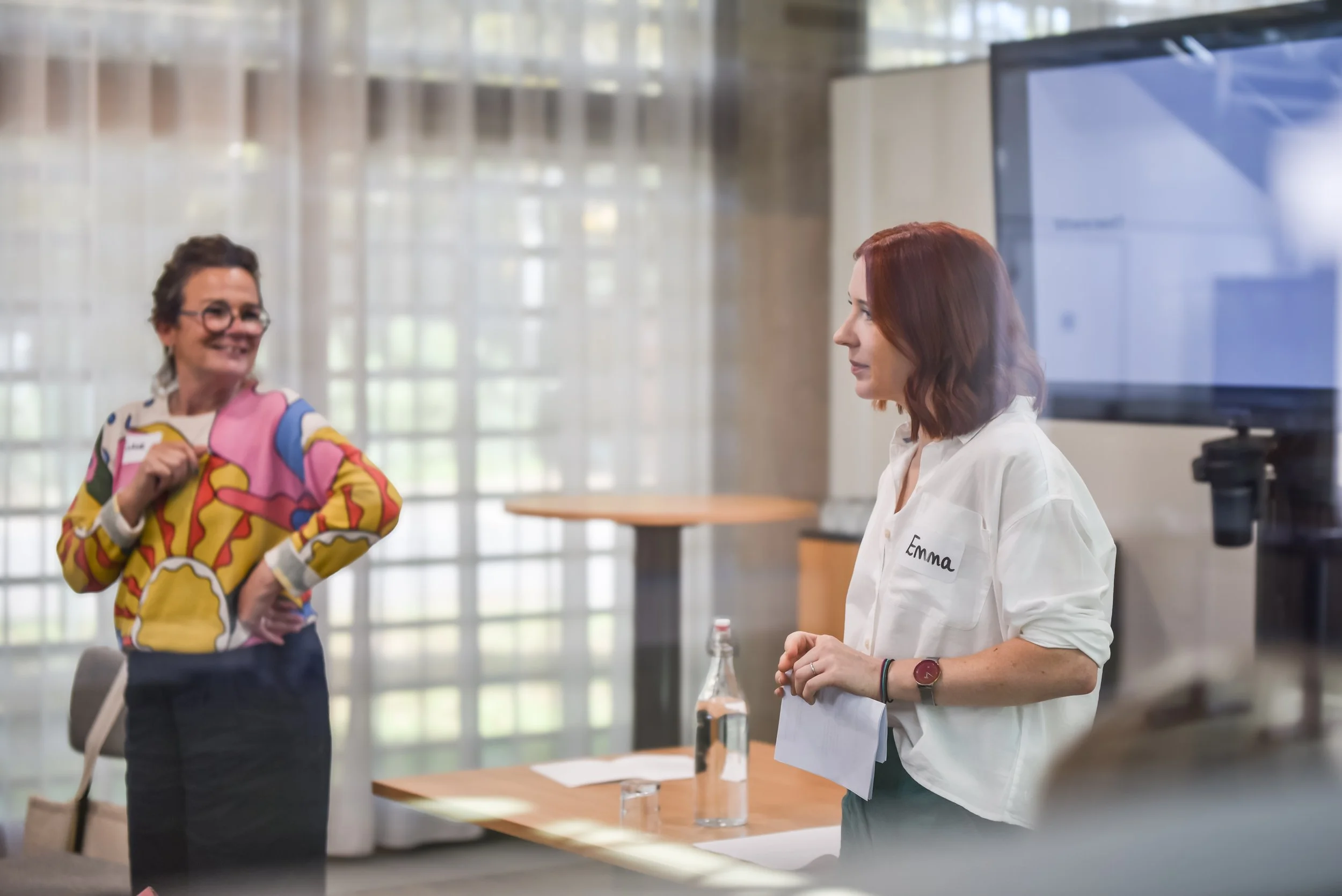Portfolio
Imroc has worked across the globe leading best practice for providing better services for the people working in and being supported by them through our coproduced methodology. We have shared a selection of our projects and work in the case studies below, take a look through our Imroc journey.
Imroc’s response to UK government's mental health bill announcement
The new Mental Health Bill aims to enhance service user autonomy, reduce restrictive practices, ensure person-centred care, and allow individuals to choose their own advocates. Key changes include ending the use of police cells as ‘places of safety’ and limiting detention for those with learning disabilities and autism. Effective implementation will depend on significant investment in services and community support.
Imroc Journey from 2008-2024
Imroc was founded in 2008 by a group of individuals with lived, life, and learned experiences. The initiative aimed to address the challenges faced by mental health organisations in embedding recovery-focused practices, conversations, and values into their services.
Peer Visioning Event 2030
On April 25th, 2024, we hosted our highly anticipated conference - it was an exhilarating experience and the energy in the room was palpable. Collaboratively, we engaged in inspiring and ground-breaking discussions, marking a thrilling step forward in shaping a brighter future for peer support.
Recovery Colleges
Imroc developed the Recovery College Model, initially implemented in three demonstration sites: South West London and St George’s Mental Health NHS Trust, Central and North West London NHS Foundation Trust, and Nottinghamshire Healthcare NHS Foundation Trust. This model's implementation was detailed in Imroc’s first briefing paper. Today, there are over 220 Recovery Colleges across the UK and in 26 countries worldwide.
The Imroc Methodology
The Imroc initiative was developed to address the challenges faced by mental health organisations in embedding recovery-focused practices into their services. Recovery is about people with mental health problems living meaningful lives, and the principles of recovery have gained international recognition. Despite this, there were no established methodologies to shift organisational cultures towards recovery-oriented practices.
Imroc’s Thought Leadership in Recovery-Focused Mental Health
Imroc has been instrumental in defining and developing recovery-focused culture and practice at personal, team, organisational, and systemic levels, both nationally and internationally. Our extensive work and partnerships have solidified our reputation as thought leaders in the mental health sector.
Imroc’s Global Impact on Recovery-Focused Mental Health Services
Discover how Imroc's global impact is transforming recovery-focused mental health services. Learn about our innovative approaches, peer support initiatives, and international collaborations driving mental health system improvements. Explore case studies, insights, and our mission to inspire, empower, and transform mental health care worldwide.
Imroc’s Strategic Response to Acute Care Service Challenges and Difficulties
Imroc has previously commented on the media exposure of appalling practice in inpatient units (Response to Dispatches – Imroc – Implementing Recovery through Organisational Change); coverage that vindicated the personal reports and cries for help from people in those services, patients, their families and staff.
Implementing the Imroc methodology in Ireland
As with much of the western world the early part of the 21st century has been a time of change in the Irish mental health services. A new Mental Health Act was put in place in 2001 which facilitated the move from institutionalised medically driven care to a more recovery, social and community based approach.
The Hewitt Review: An opportunity to invest in the power of communities to achieve greater wellbeing?
The conclusions and recommendations of the Hewitt review focus on enabling local systems to prioritise how they use their resources to meet the needs of their local populations. Of particular interest to us at Imroc are two of their recommendations: the emphasis placed on enabling and improving whole system working, and the priority placed on health promotion and prevention.
Imroc and Nottingham Trent University – Developing a Peer/Lived Experience Leadership MSc Programme
Imroc are co-producing a leadership programme in partnership with an international advisory board, and Nottingham Trent University (NTU) to support the needs of peer and lived experience leaders. This programme will offer the opportunity for people with lived experience and their allies to develop the authority and skills to occupy leadership positions within Health and Social Care organisations.
Glossary
-
Learning spaces that offer co-produced workshops and courses which support and enable people to take control of the condition they live with and to live the lives they want to lead. They are underpinned by key principles which bring together the wealth of available knowledge, skills, experiences and wisdom of those using services and those who support them, those delivering services and subject experts.
-
A structured process of support and learning within working environments that enables individuals to develop knowledge and competence, assume responsibility for their own practice, and enhance consumer protection and the quality of services. Imroc encourages peer-to-peer supervision where possible, rather than peers being supervised by a different professional group.
-
Recovery-focused care emphasises the individual's journey towards healing and well-being, prioritising personal strengths, goals, and empowerment. This approach supports the belief that recovery is possible and centers on the person’s aspirations. It involves collaborative, person-centred planning, where the individual takes an active role in their recovery process. Services and supports are tailored to promote autonomy, self-determination, and social inclusion. Recovery-focused care also integrates a holistic view, addressing not just symptoms but overall quality of life, including physical health, social connections, and meaningful activities. It aims to build a fulfilling, self-directed life beyond the limitations of mental health or substance use issues.
-
A principle of working together, treating people being supported by services, carers, and professionals as equal partners in the design, development, delivery, and evaluation of services. Co-Production emphasises the importance of harnessing the insights and expertise of those with lived experience to create more effective and responsive services.
-
A group of people who share a common interest, profession, or passion and come together to fulfil both individual and group goals. Communities of practice focus on sharing best practices, learning from one another, and collectively solving problems within a specific domain or field. At Imroc, our training teams come together regularly to learn, share, and continuously develop their awareness and knowledge and reflect on their experiences.
-
A space to come together on a regular basis to exchange learning, share ideas, develop our thinking further and hear about the latest research and evidence on Recovery Colleges. A combination of presentations, guest speakers and group discussions give members the opportunity to share experiences and innovations, learn from each other and develop practice.
-
A professional service provided by lived and learnt experience experts to offer advice, guidance, and actionable solutions to organisations or individuals. In the context of Imroc, consultancy focuses on facilitating organisational change, embedding recovery principles, and enhancing peer support within services. It involves assessing needs, developing strategic plans, offering tailored training, and supporting the implementation of practices that are inclusive, equitable, and rooted in the wisdom of lived experience.
-
Referring to fairness and justice in the way people are treated and served. In the context of mental health services, equitable practices ensure that every individual has access to the support, resources, and opportunities they need to achieve their best health outcomes, regardless of their background, circumstances, or challenges. This involves addressing disparities and removing barriers to inclusion and participation.
-
A supportive relationship between individuals who share a common experience, which can include recovering from being in services and rebuilding a life outside of services. Peer Support Workers use their own lived experience to offer empathy, understanding, and encouragement to others in their recovery journey. It is based on principles of mutuality, respect, and shared responsibility for well-being.











